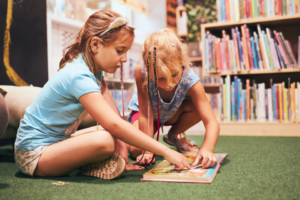
How to Approach Social and Emotional Learning While Teaching Remotely
While academics are promoted in education consistently and for a good reason, social and emotional learning should be trumpeted throughout all years in education from preschool through college. When looking at society today, it seems like something children and adults would benefit significantly from enormously.
What Is Social and Emotional Learning (SEL)?
Social and emotional intelligence teaches people how to manage their emotions appropriately when faced with others with differing opinions and behavior. In school, social and emotional learning (SEL) teaches kids to demonstrate sympathy and empathy for others while also establishing solid positive relationships. It also instructs on how to set and achieve goals in life and to be able to take full responsibility for their decisions. In essence, it educates kids to be reliable and caring citizens that know the difference between right and wrong.
A good SEL program could be the difference between kids acting like they are straight out of Lord of the Flies or from the Sound of Music. With the proper SEL education, it would continue to adulthood and hopefully improve society.
SEL Is on the Rise
According to an Education Week survey of more than 500 school districts going into the 2019-2020 school year, 90 percent of them had already invested or planned to invest in SEL programs and products.
SEL for Remote Learning
With so many districts currently using remote learning for their education needs as COVID restrictions are still in place for countless Americans, it can be tricky to teach SEL through video conferencing and other online avenues. But it isn’t impossible.
There are little things you can do as an educator or parent to promote SEL in all households.
- Warmly greet all children at the beginning of the day. Ask how they are and their goal for the day
- Share personal stories or stories from history that demonstrate how others’ empathy can make all the difference in the world
- Have students work as partners, and they will see how their differences can be overcome
- Set goals to do something kind every day without the person receiving the kind act to ever know about it. Being recognized for good deeds is nice, but it should not be the primary goal
- Instruct students to ask themselves daily if they have done their best work possible
- Roleplay with them to place the students in difficult situations to get them to think about their actions
- Get to know one another. In small classes, this may not be a problem. But in larger class sizes, pair students up and have them ask questions. They can even do a short report on their partner’s life up to this point
- Seek mentors for kids that are struggling and pair up responsible students with younger ones that may be in need.
All of these activities and strategies can be incorporated regardless if it is remote learning or in-person.
Remote Tutoring
If your child is having difficulty with academics and could benefit from some tutoring during these difficult times, iAchieve can assist. We offer online tutoring to all parts of the world. Plus, we will demonstrate SEL during each of our tutoring sessions by providing a concrete example of a responsible adult and exhibiting correct behavior.
RELATED BLOG POSTS
Emotional Intelligence Cannot be Underrated
How to Help Students Cope with Emotional Situations
Beyond Pencils and Books: Social and Emotional Learning in School



